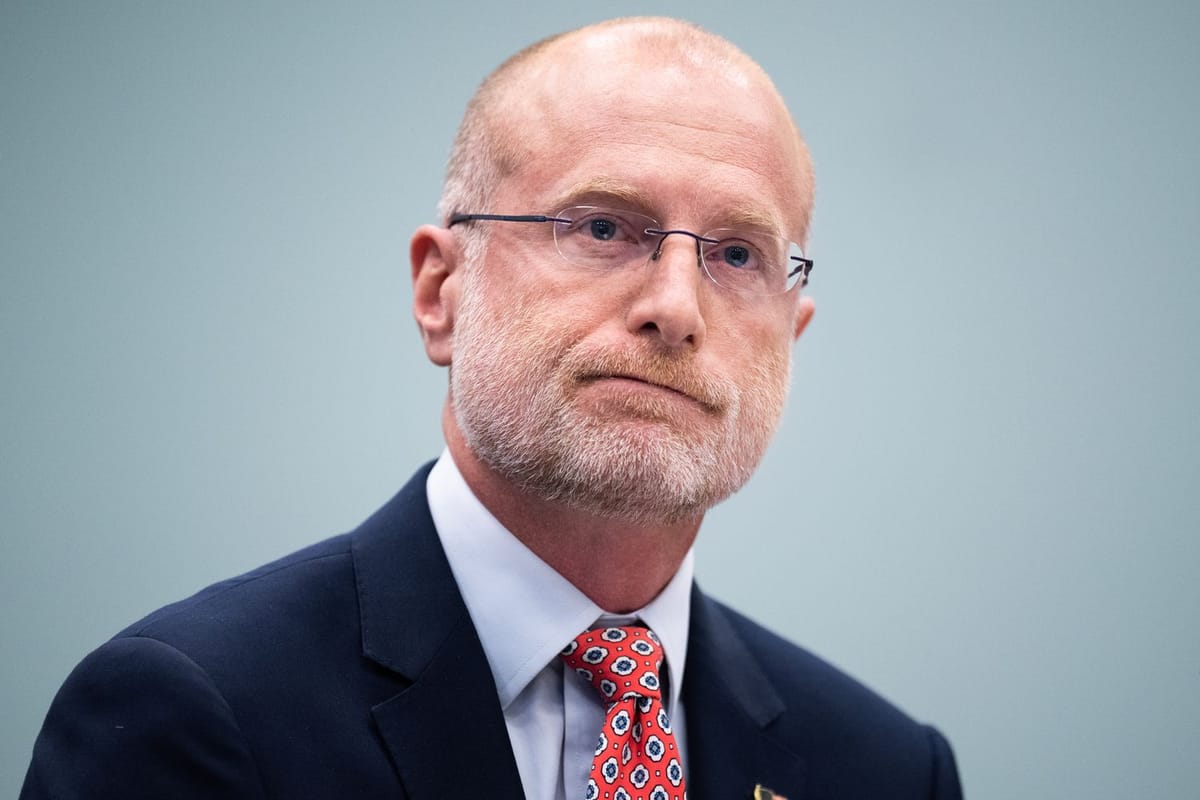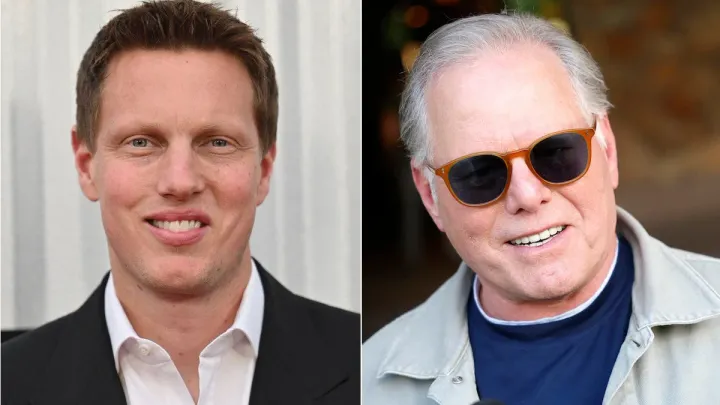THE POWER BROKER: BRENDAN CARR AND THE TRANSFORMATION OF THE FCC

THE REGULATOR’S REGULATOR
In the heart of Washington D.C., a significant shift in media regulation has been underway since November 2024. At the center of this transformation is a Georgetown-educated lawyer who has rapidly ascended through government ranks to become one of the most influential—and controversial—figures in telecommunications policy: Federal Communications Commission (FCC) Chairman Brendan Carr.
Once relatively unknown outside regulatory circles, Carr has recently thrust himself into the national spotlight through a series of high-profile actions that have dramatically reshaped America’s media landscape. Most recently, his criticism of late-night host Jimmy Kimmel preceded ABC’s decision to suspend Kimmel’s show indefinitely—a move that has ignited fierce debate about the boundaries between government oversight and free speech.
But who exactly is Brendan Carr? How did this 46-year-old Washington native rise to such a powerful position? And what does his leadership mean for the future of American communications?
THE MAKING OF A REGULATOR
Born and raised in the nation’s capital, Brendan Carr’s trajectory toward telecommunications policy began with his education at Georgetown University. After completing his undergraduate studies, Carr continued his academic journey at the Catholic University of America’s Columbus School of Law, where he honed the legal expertise that would later define his career.
Before joining the federal government, Carr cut his teeth as a private attorney at Wiley Rein LLP, a prestigious Washington law firm known for its telecommunications practice. There, he represented corporate clients, primarily from the wireless industry, on regulatory matters—gaining invaluable insight into the very businesses he would later oversee.
In 2012, during President Obama’s administration, Carr joined the FCC as a staff attorney—a first step that would prove to be the foundation of a remarkable ascent within the agency. His technical expertise and grasp of communications law quickly set him apart, and by 2017, he had been elevated to the role of FCC General Counsel under Chairman Ajit Pai, himself a Trump appointee.
“Carr’s rise within the FCC is notable for its speed and trajectory,” explained a former commission staffer who requested anonymity to speak freely. “He moved from staff attorney to general counsel to commissioner in just five years—a remarkably swift climb in an agency where institutional knowledge is typically accumulated over decades.”
The crucial turning point in Carr’s career came later in 2017, when President Trump nominated him to fill a Republican seat on the commission. The Senate confirmed his appointment unanimously—a rarity in an era of intense political polarization—and he was subsequently reconfirmed in 2019 for a full five-year term.
During his years as a commissioner under both Trump and Biden administrations, Carr established himself as a staunch advocate for deregulation, particularly in the wireless and broadband sectors. He championed policies designed to accelerate 5G deployment and consistently voted to reduce regulatory burdens on telecommunications companies.
But it was his increasingly vocal criticism of major media outlets and technology platforms that began to distinguish him from his predecessors and peers. As polarization in American politics intensified, Carr increasingly aligned himself with conservative perspectives on media bias and content moderation.
PROJECT 2025 AND THE PATH TO CHAIRMANSHIP
By early 2024, as Trump sought reelection, Carr had positioned himself as the clear frontrunner for FCC chairmanship should Republicans retake the White House. He solidified this standing by authoring the FCC chapter in “Project 2025,” a comprehensive policy blueprint created by the Heritage Foundation for a potential second Trump administration.
In this influential document, Carr outlined a vision for the FCC that extended well beyond its traditional scope. “The FCC should promote freedom of speech,” he declared in the chapter’s opening lines—framing his regulatory philosophy as a corrective to what he characterized as the censorship of conservative viewpoints by both traditional broadcasters and technology platforms.
Carr’s Project 2025 contribution advocated for significantly expanding the FCC’s authority to regulate major technology companies, including Apple, Meta, Google, and Microsoft—a radical departure from the commission’s historical focus on broadcasters and telecommunications providers. This proposal aligned perfectly with Trump’s increasing criticism of Silicon Valley during the campaign.
As Trump’s electoral victory became clear in November 2024, Carr’s appointment as FCC chairman seemed all but inevitable. He had cultivated the right alliances, demonstrated ideological alignment with the president-elect, and established himself as a known quantity in conservative policy circles, including the Heritage Foundation and the Federalist Society.
Carr had also forged relationships with key Trump allies, most notably Elon Musk. On X (formerly Twitter), Carr frequently shared photographs of himself attending SpaceX launches and visiting other Musk ventures, documenting a growing personal connection to the billionaire who had become one of Trump’s most influential supporters.
When President Trump officially named Carr as FCC chairman in January 2025, the announcement highlighted these very qualities: “Commissioner Carr is a warrior for Free Speech, and has fought against the regulatory Lawfare that has stifled Americans’ Freedoms, and held back our Economy.”
REMAKING THE FCC
Carr wasted no time implementing his vision once installed as chairman. Within his first six months, he had launched a series of initiatives that dramatically reoriented the commission’s priorities and approach to regulation.
His first significant action was to reinstate complaints against major broadcast networks—CBS, NBC, and ABC—that had previously been dismissed by the Biden-era FCC on First Amendment grounds. These complaints, filed by conservative groups, alleged systematic political bias in news coverage.
In March, he initiated an investigation into ABC’s parent company, Walt Disney Co., to determine whether its diversity, equity, and inclusion (DEI) programs constituted “invidious forms of discrimination.” Similar investigations into CBS and NBC followed, signaling Carr’s intention to use the full weight of the commission’s authority to scrutinize what he viewed as problematic practices within major media corporations.
The chairman also moved swiftly to dismantle regulations on broadband providers that had been implemented or maintained by his predecessors. This deregulatory push extended to the wireless sector as well, where Carr had long advocated for reducing barriers to infrastructure deployment.
One of the most consequential episodes of Carr’s early chairmanship involved CBS parent company Paramount’s proposed $8 billion merger with Skydance. As the FCC reviewed the deal, Carr publicly linked its approval to a complaint filed against CBS’s “60 Minutes” program, which had been accused of editing an interview with former Vice President Kamala Harris to present her favorably during the 2024 campaign.
In July, just weeks after Paramount settled Trump’s lawsuit against CBS for $16 million, Carr approved the Paramount-Skydance merger. As part of the agreement, Paramount agreed to appoint an ombudsman—Kenneth Weinstein, former head of a conservative think tank and a Trump donor—to investigate complaints of political bias at CBS News.
This sequence of events drew sharp criticism from media watchdogs and former FCC officials. “The appearance of leveraging regulatory approval of a major corporate merger to settle political scores is unprecedented in the commission’s history,” noted one former Democratic FCC commissioner.
However, supporters of Carr’s approach argued that he was simply enforcing the “public interest” standard that has long been part of the FCC’s mandate when licensing broadcasters. They pointed out that this standard had been interpreted differently by different administrations over the commission’s nearly century-long history.
THE KIMMEL CONTROVERSY
The most dramatic—and controversial—moment of Carr’s chairmanship to date came in September 2025, when he inserted himself into a heated debate over comments made by late-night host Jimmy Kimmel regarding the assassination of conservative activist Charlie Kirk.
Kirk, a prominent right-wing podcaster and founder of Turning Point USA, was fatally shot while speaking at a college campus in Utah. In the aftermath, Kimmel made remarks on his ABC program suggesting that “many in MAGA land are working very hard to capitalize on the murder of Charlie Kirk.” The comments sparked immediate outrage in conservative circles.
On September 18, Carr appeared on conservative influencer Benny Johnson’s podcast and delivered a stern warning: “This is a very, very serious issue right now for Disney. We can do this the easy way or the hard way. These companies can find ways to take action on Kimmel or there is going to be additional work for the FCC ahead.”
The implications were clear—Carr was suggesting that ABC’s parent company, Disney, could face regulatory consequences if it didn’t address Kimmel’s comments. He specifically mentioned the role of local station owners, who have FCC licenses that must be renewed periodically.
“Broadcasters with FCC licenses have a unique obligation to operate in the public interest,” Carr later explained on Fox News. “And over the years, the FCC walked away from enforcing that public interest obligation. I don’t think we’re better off as a country for it.”
Within hours of Carr’s comments, two major station groups—Nexstar and Sinclair—announced they would pull Kimmel’s show from their ABC affiliates. Shortly thereafter, ABC announced that “Jimmy Kimmel Live!” would go on an “indefinite hiatus.”
The speed with which these events unfolded shocked media observers and raised immediate concerns about government pressure on private speech. Civil liberties organizations quickly condemned what they saw as an abuse of regulatory power. The American Civil Liberties Union issued a statement declaring: “Trump officials are repeatedly abusing their power to stop ideas they don’t like, deciding who can speak, write, and even joke. The Trump administration’s actions, paired with ABC’s capitulation, represent a grave threat to our First Amendment freedoms.”
Even some Republicans expressed concern. Senator Ted Cruz of Texas, who chairs the Senate committee that oversees the FCC, compared Carr’s “We can do this the easy way or the hard way” remark to something a mafioso might say. “What he said there is dangerous as hell,” Cruz commented.
House Democratic leaders went further, calling for Carr’s resignation and accusing him of “bullying” ABC into suspending Kimmel. In a joint statement, they characterized the episode as part of a broader “war on the First Amendment” by the Trump administration.
Defenders of Carr’s actions argue that he merely expressed an opinion and didn’t take any formal regulatory action against ABC or its affiliates. They point out that the First Amendment prohibits government action limiting free speech, not government speech itself.
President Trump himself weighed in on the controversy, praising ABC’s decision to suspend Kimmel as “Great News for America” and further intensifying the political dimensions of the debate.
The Kimmel incident highlighted a dynamic that has become increasingly apparent during Carr’s chairmanship: the power of “jawboning”—when government officials use their platform to pressure private entities without formal regulatory action. Critics argue this represents a concerning end-run around First Amendment protections, while supporters maintain that officials have their own free speech rights to criticize private media.
THE NEW REGULATORY LANDSCAPE
As Carr’s FCC approaches its one-year mark, the contours of a dramatically reshaped regulatory environment for American media and telecommunications have emerged. The commission has become more explicitly interventionist in matters of content and corporate conduct, while simultaneously reducing traditional economic regulations on the industries it oversees.
This apparent paradox—more regulation of speech but less regulation of business practices—reflects Carr’s view that the primary threat to American freedom comes not from corporate consolidation but from what he perceives as ideological homogeneity within major media and technology companies.
“What’s unique about Chairman Carr’s approach is that it inverts the traditional liberal critique of media consolidation,” explained a telecommunications policy expert. “Instead of worrying that a few companies control too much of what Americans see and hear, he worries that those companies are all saying the same things—and that those things reflect a progressive worldview.”
For broadcasters and their parent companies, this new reality has created a complex set of incentives. Many have pending business before the FCC or other federal agencies, creating potential vulnerability to regulatory pressure. At the same time, they must balance responding to this pressure against their journalistic missions and viewer expectations.
The telecommunications industry has largely welcomed Carr’s deregulatory approach to broadband and wireless services, while remaining cautiously neutral on his more controversial interventions in media content. Major tech platforms, meanwhile, are closely watching his stated intention to expand FCC oversight into their domains—a prospect that could fundamentally alter the regulatory landscape for Silicon Valley.
Former FCC officials from both parties have expressed concern about the long-term institutional impacts of Carr’s approach. “The commission’s credibility depends on being perceived as a fair arbiter of technical and legal matters, not as a political enforcer,” noted one former Republican commissioner. “Once that perception is lost, it’s very difficult to restore.”
Nevertheless, Carr appears undeterred by such criticism. His public statements suggest a conviction that he is correcting a long-standing imbalance in media regulation—one that he believes has favored progressive viewpoints and disadvantaged conservative ones. From this perspective, his actions represent not a departure from the FCC’s traditional role but a return to its core function of ensuring that broadcasters serve the “public interest.”
THE MAN BEHIND THE HEADLINES
Beyond his public persona as a regulatory warrior, colleagues describe Carr as methodical, detail-oriented, and deeply versed in telecommunications law. His extensive knowledge of the FCC’s statutory authority and regulations allows him to identify novel applications of existing rules to address what he sees as contemporary problems.
“He’s not just an ideologue—he’s a very skilled lawyer who understands exactly how far he can push the boundaries of the commission’s authority,” said one communications attorney who has worked with Carr.
In his personal life, Carr maintains a relatively low profile. He lives in Washington, D.C. with his wife and children, though he guards details about his family life carefully. His social media presence focuses almost exclusively on professional matters, with occasional glimpses into his interest in space exploration (often connected to his relationship with Musk) and telecommunications infrastructure.
Those who have worked with him describe a demanding boss with exacting standards but also a clear vision. “He knows exactly what he wants to accomplish at the FCC, and he’s assembled a team that shares that vision,” said a current commission staff member, speaking on condition of anonymity.
Unlike some Trump appointees who came to their positions with limited experience in their agencies’ domains, Carr is widely acknowledged—even by critics—as having deep expertise in communications law and policy. This expertise allows him to work effectively within the commission’s bureaucracy to implement his agenda.
What remains less clear is how Carr views his place in history. Is he pursuing a temporary corrective to what he perceives as progressive bias in media regulation, or does he envision a permanent transformation of the FCC’s role in American life? The answer to this question may determine whether his chairmanship represents a momentary deviation in the commission’s trajectory or a fundamental realignment of its purpose.
THE ROAD AHEAD
As Brendan Carr continues to reshape the FCC in his image, several key questions remain unanswered. Will his approach withstand legal challenges from civil liberties organizations and affected companies? Will Congress step in to clarify or limit the commission’s authority? And how will broadcasters adapt to this new regulatory environment?
The Kimmel controversy appears to be just the beginning of what promises to be a contentious period in American media regulation. Carr has signaled his intention to continue scrutinizing broadcast content for what he considers violations of the “public interest” standard, while also pursuing his agenda to extend the commission’s reach to digital platforms.
For journalists, commentators, and entertainers, the implications are profound. The line between protected speech and potentially sanctionable content has become less clear, creating uncertainty about what can be said on air without risking regulatory scrutiny.
Media companies face equally difficult calculations. Their business models often depend on government approvals—from broadcast license renewals to merger authorizations—creating vulnerability to pressure. Yet surrendering editorial independence risks alienating audiences and compromising journalistic integrity.
As for Chairman Carr himself, his future seems increasingly tied to the success of the Trump administration’s broader efforts to reshape federal agencies. He has positioned himself as a loyal and effective implementer of the president’s vision for telecommunications and media policy—a role that could lead to even greater influence should Trump win a second full term in 2028.
For now, however, Carr remains focused on the task at hand: using his platform at the FCC to address what he sees as fundamental imbalances in America’s information ecosystem. Whether this represents a much-needed correction or a dangerous overreach of regulatory authority remains fiercely contested—much like everything else in our polarized age.
What’s clear is that Brendan Carr has transformed what was once an obscure regulatory position into a powerful platform for influencing American media. In doing so, he has become not just an administrator of communications policy but a central figure in ongoing debates about the boundaries between government authority and free expression in the digital age.
As these debates continue to unfold, one thing is certain: the decisions made during Carr’s chairmanship will reverberate through American media and telecommunications for years to come. Whether they will strengthen or weaken the foundations of a free press and open communication remains to be seen.
About Limitless Newsletter: Providing in-depth analysis of the people and institutions shaping our world. Subscribe for weekly insights that go beyond the headlines.
© 2025 Limitless Newsletter. All rights reserved.



Comments ()